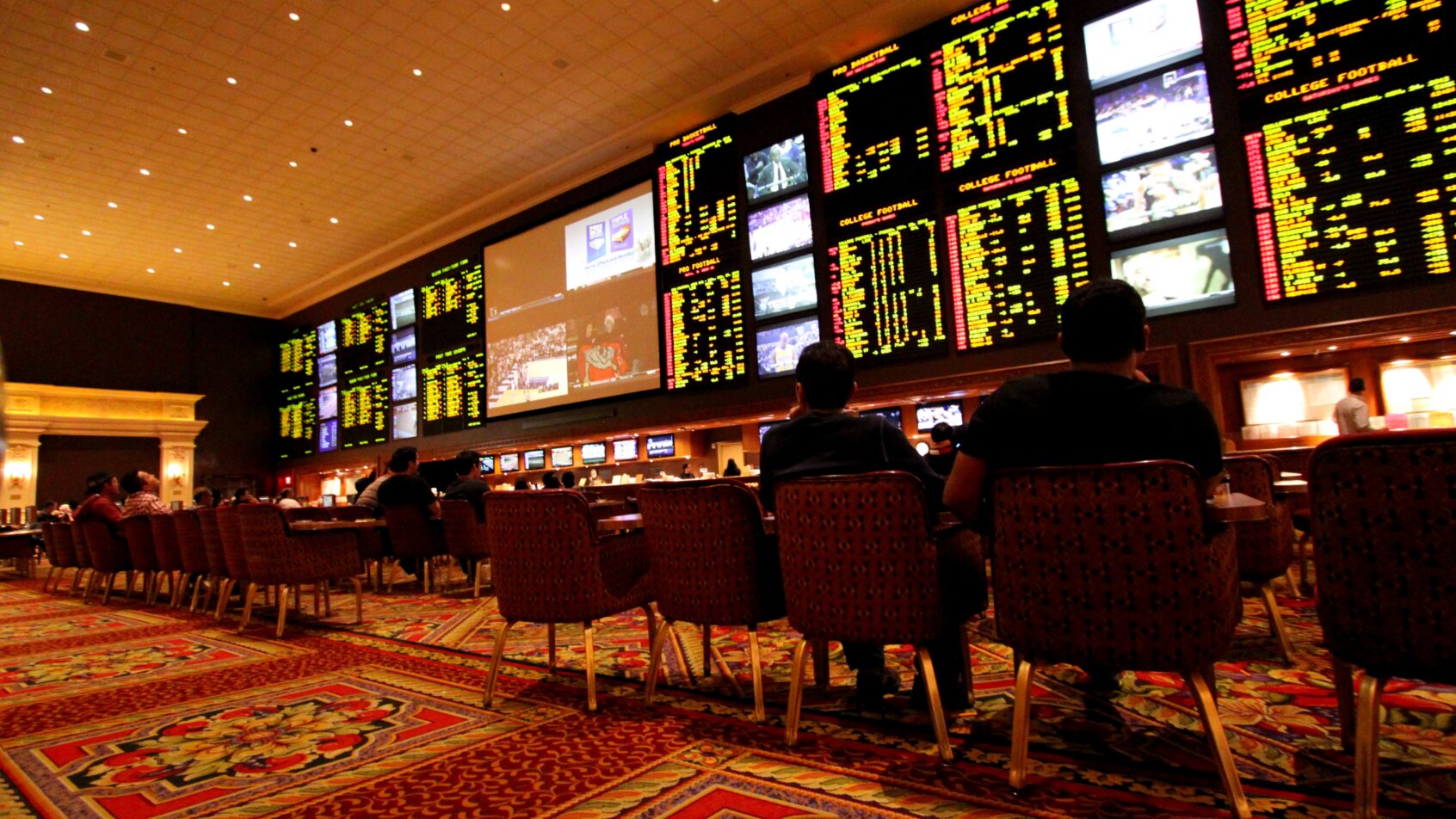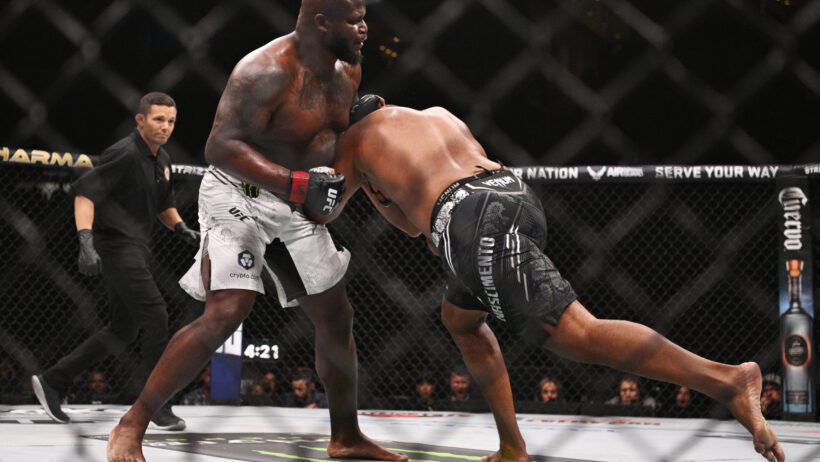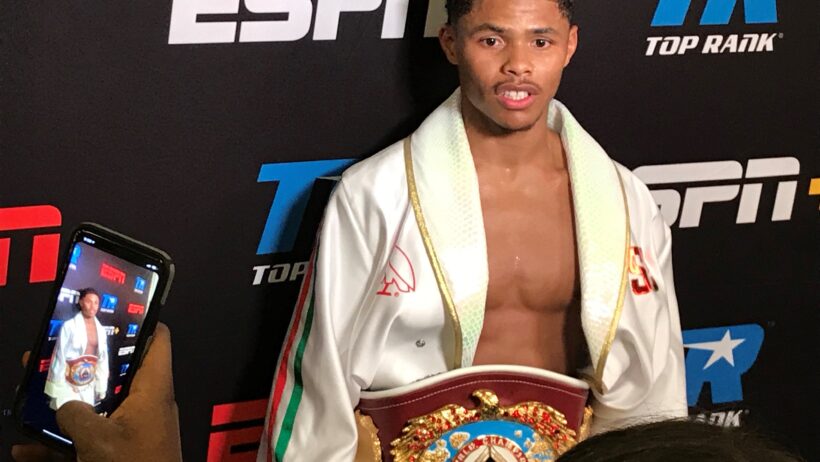Hot Stakes – Sports Betting Opponents Oppose Only Logic
By Larry Houser in News
Updated: January 17, 2018 at 9:39 am ESTPublished:

Blame Republicans.
Blame Democrats.
Blame the NFL and the NCAA.
Blame Tim Donaghy.
Blame whomever you want. There is plenty to go around if you believe that allowing unfettered sports betting in only one of the 50 states borders on insanity.
Polls have shown that over half the country favors the legalization of government-regulated sports wagering. Yet, despite lobbying and political pressure, the movement barely registers in Washington.
For those of us who like sports, like gambling, and love when the two are combined, it is maddening and frustrating that we have to spend $450 on a round-trip plane ticket to Nevada in order to place a $10 bet on the Celtics to cover against the Hawks.
The shame is that it didn’t have to be this way. Before 1992, any state that wanted to legalize sports wagering could have done so. But the oddly-named Professional and Amateur Sports Protection Act (“PASPA”) changed all that. Then-New Jersey Sen. Bill Bradley squired the bill through Congress, President George H.W. Bush signed it, and that was that.
Sports betting was grandfathered in in Nevada and permitted only on an extremely limited basis in a few other states. Those states which had allowed casino gambling for at least a decade – basically only Bradley’s home state of New Jersey – had a year to implement it.
But the effort in New Jersey fell short when it turned into a pissing match between Democrats (who wanted to put it on the ballot) and Republicans (who didn’t). The Atlantic City casinos had an East Coast monopoly and were printing money, so it was no big deal anyway. The bid died, Sin City maintained its legal monopoly, and if you wanted to bet on sports without heading to the desert, you had to get your action from Vinny down on the corner. Illegally.
Things rolled along without a hitch until two things – the Internet and the 2008 recession – changed everything.
Illegal in the United States, online wagering on sports sprouted up in the Caribbean and Central America, and when the feds figured out what was going on, they couldn’t resist flexing their muscles and shutting down sites which were taking action from American bettors. There are still ways around it, but horror stories abound about bettors not being able to access their winnings.
In New Jersey, meanwhile, the dozen casinos along the Boardwalk were doing quite nicely until the bottom gave way on the economy eight years ago. Discretionary spending dried up, and suddenly the Atlantic City Expressway from Philadelphia was no longer clogged with senior-laden busses.
As bottom lines suffered, jobs were lost, and casinos started to close their doors, New Jersey politicians had a Come-to-Jesus moment and decided that maybe sports betting wouldn’t be so bad after all.
The casinos were all for it, and even Republicans (belatedly) got on board. In 2011, voters overwhelmingly backed a plan to challenge PASPA in court. Backers even lassoed recalcitrant Gov. Chris Christie into their camp. “We will have sports betting at the next Super Bowl,” state Sen. Ray Lesniak told me when I met with him in late 2009.
Since then, nada.
New Jersey moved forward with its court challenge, and has been met with nothing but roadblocks from the federal courts. The NBA, NFL, MLB, NHL, and NCAA have sent their suits to fight against sports betting legalization, and against all logic the courts have been in their corner. The state’s last appeal was heard in February, and if the courts don’t budge (a ruling is expected to come down in late spring or early summer), last call will be the Supreme Court.
Intransigence from the NCAA and pro leagues comes with a side order of hypocrisy.
The NFL grew to prominence by raiding the wallets of fans. For decades, the league has remained mute while every major newspaper in the country publishes betting odds. Many papers still have columns devoted to sports betting. A league which forces an annual game in London (where there in a sports betting parlor on just about every street corner) and wants to put a franchise in jolly old England fears the “bad optics” of legalization in America? Really?
Recent developments regarding the NFL and Las Vegas make the league’s stance on sports betting even more puzzling. A few months ago there were reports that the Oakland Raiders might be considering a move to the desert. Neither the team nor the NFL has gone out of its way to shoot down the story, so we have to assume that there’s some juice there. Imagine a new stadium in Las Vegas, with the city being the permanent home of the Super Bowl. No city, with the possible exception of New Orleans, has the infrastructure to do it better.
And what to make of the NBA, which has been all over the map on sports betting since holding its 2007 All-Star Game in Las Vegas?
The league was burned by the Tim Donaghy referee scandal in the mid-to-late-2000s, but seems to have gotten past all that. Commissioner Adam Silver concedes that sports betting is “inevitable,” and that the NBA would be a willing and eager participant once such wagering is legalized and regulated.
Excellent – except for one thing: the NBA is still in cahoots with the other leagues in fighting New Jersey’s challenge to PASPA. If the NBA is generally in favor of sports wagering on the one hand, how can it lend its financial resources to fight it on the other? And if the NBA has a problem with wagering in New Jersey’s eight remaining casinos, then in what form would the league favor it?
Then there’s the not-so-small matter of fantasy sports betting, which for some odd reason, seems to have passed muster with the NFL office. FanDuel and DraftKings, the two major daily fantasy operators, are getting some heat from individual states, but the feds so far have been hands off. It doesn’t hurt that both leagues advertise heavily during football season. FanDuel, in fact, has advertising deals with nearly half of the teams in the NFL.
Arguments against legalized sports betting always revolve around scandals: Donaghy; Pete Rose; Boston College basketball in the 1970s; soccer in Africa; even some sumo wrestlers were found to be on the take. If sports isn’t seen to be on the level, the leagues claim, then fans will lose trust in the sport and people won’t come. That’s the argument the leagues have used in fighting the New Jersey challenge.
But that spiel is easily rebutted by simply pointing out that sports betting will continue whether it is legal or not, and that a regulated (and yes, taxed) industry with a light shining on it 24/7/365 would be much more antiseptic than one in which you have to deal with Vinny on the street corner.
Congress has been relatively quiet about sports betting since its no. 1 advocate, Massachusetts Rep. Barney Frank, retired a few years ago. New Jersey Rep. Frank Pallone, a sports betting backer, has pressured a House subcommittee into holding hearings next month on online and fantasy betting as well as sports wagering. But don’t expect much more than a non-committal report on expensive, glossy paper.
They say it’s better to be a pessimist, because pessimists are never disappointed. So put me in that camp. When it comes to legalized sports betting, all roads appear to lead to nowhere.
(Photo credit: Prayitno (flickr) [https://creativecommons.org/licenses/by/2.0/legalcode].)
Entertainment Writer
Political junkie Larry Houser has been mainlining D.C. gossip for over 30 years. He prides himself on being able to separate reality from illusion and, in turn, providing sound, judicious analysis on hot-button issues that otherwise evoke myopic reactions.



